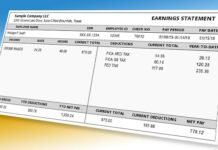
Having short-term and long-term goals is essential to living a satisfying and fulfilling life. In addition to setting financial and relationship-related plans, you should consider what you hope to accomplish in the professional world: developing a professional goal.
Often, students or new employees forget to set career goals after they leave college or start their first job. As a result, they may feel uninspired and listless in their chosen roles. The following tips will assist you in setting the right goals for the future as you look for meaning and growth.
What Constitutes An Effective Professional Goal?
A practical professional goal should be challenging, engaging, and not overly demanding. Additionally, the SMART framework may help establish goals you enjoy and lead to company-level goals.
Here’s a general breakdown of SMART and what each letter stands for:
- Specific — Your manager, team, and yourself will know what you’re aiming for when you have a particular goal. A clear one makes developing a plan easier.
- Measurable — It is essential to have measurable professional goals. You can try different ways if you’re still striving toward your plan.
- Attainable — Choosing challenging yet achievable metrics will help you stay motivated and on track. Assess where you are now and where you want to be. Your goals should be within reach if you take incremental steps within this bracket.
- Relevant — It is vital to align work goals with team and business objectives. It is essential to tie your goals to these grander visions and dreams so they can serve as the backbone of your work.
- Time-bound — Setting a suitable time frame is essential for achieving your goal. Ensure that you and your teams have ample time to accomplish the goal without allowing it to lose momentum.
Best Ways to Set New Professional Goals

Here’s how you can set new professional goals:
1. Sharpen Your Skills With a Course
People have a terrible habit of buying courses but not completing the material these days or working toward their learning goals. But you shouldn’t follow the same path. You can improve if you take lessons from industry titans. Having learning goals is also an essential part of personal development. As a result, you have more control over your knowledge.
Check out the instructors to see if they have something valuable to share before enrolling or jumping on a deal. You can also achieve measurable goals by taking courses and getting another degree. Completing the course, attending class, and passing exams are all reliable ways to measure progress toward a goal.
Fortunately, because of e-learning’s exponential growth, you can pursue your degree whenever convenient. Plus, you will be able to add more achievements to your resume, which will help you land that dream job!
2. Examine Your Past
Planning for the future often requires taking into account the past. Over the years, consider the roles and jobs you’ve held and your achievements. Did you feel passionate, excited, or generally happy while meeting your targets in your previous jobs?
By reviewing your past, you can also reconsider some of the original career goals you set. Was your goal after college to work for a specific company or move to a new position? Do you seem to be making progress toward your goals?
3. Assess Your Current Value

Reviewing your past, reflect on how your life has changed and what you value in a job today. Would you rather earn a high salary or spend more time with your family and friends? Are you more concerned about independence and autonomy at work or with recognition and feedback?
Make a list of the current values that may guide your search for a new role if you decide to change jobs. This way, you can get an idea of what functions you should be aiming for and what companies you may be interested in.
4. Analyze Your Gaps
You may not have the skills or talents needed to achieve your professional goals, even if you have the ambition and passion. Finding out where you are lacking in your education or experience will give you a better idea of how to approach your goals.
Looking at the job description for a role you’d like to have, you may discover you lack the required credentials or degree. In this case, you may need loans to help you resume your education and expand your skills. Identifying your weaknesses will help you overcome them.
Conclusion
Planning, focus, and perseverance are essential for setting and achieving professional goals. You can assess your current situation, set attainable, specific, and measurable goals, and adjust if necessary. Choosing the right mindset will help you achieve everything you want in your career.








